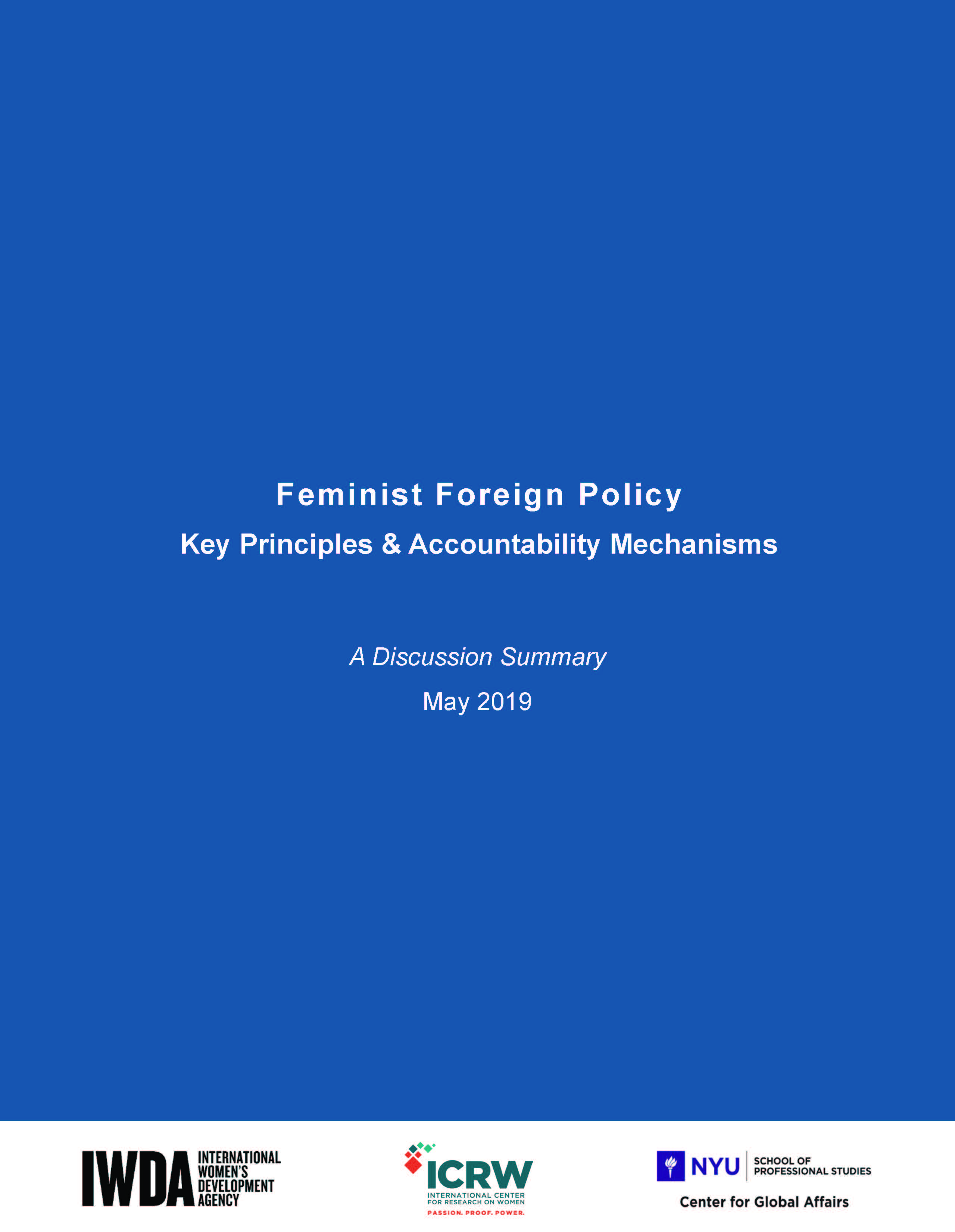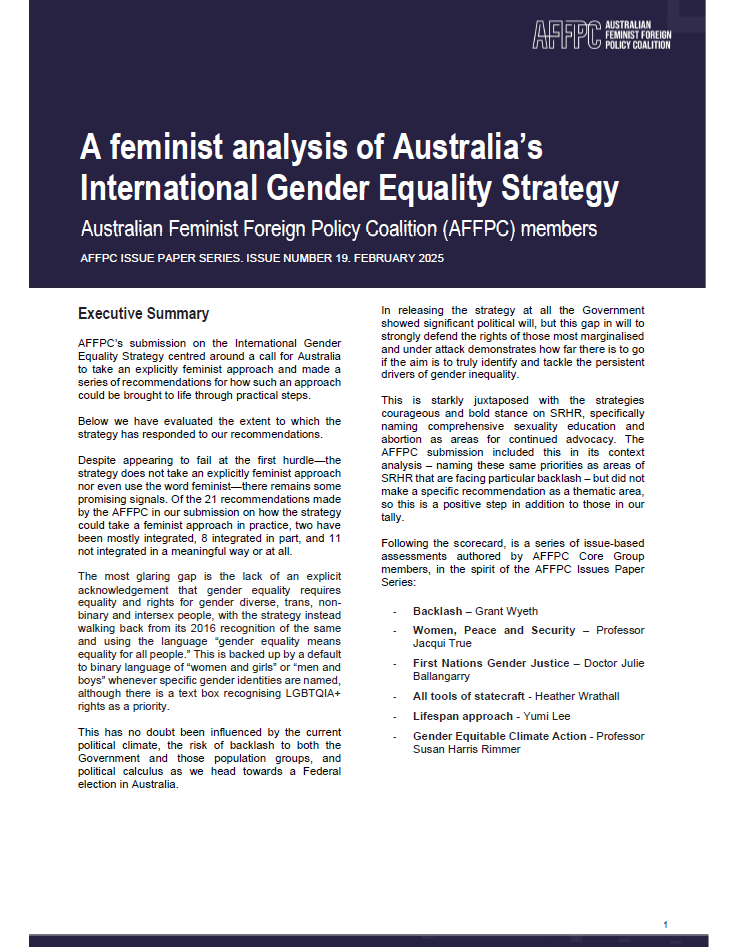Feminist Foreign Policy: Key Principles & Accountability Mechanisms
Feminist foreign policies are increasing in popularity around the world with Sweden [pdf], Canada and now France all boasting feminist approaches to their development assistance and/or foreign policy efforts.
Foreign policy defines the parameters for a country’s approach to defence, trade, development assistance and diplomacy, and can lead to significantly different outcomes for people based on their gender. Despite this, foreign policy is not often considered through a gendered lens. Feminist foreign policy aims to counter this, by highlighting the different ways policies and investments impact people based on their gender and working towards policy approaches that increase gender equality outcomes.
However, there is no globally agreed definition of what makes a foreign policy feminist, which raises important questions for gender equality advocates. Who decides what feminist foreign policy means in practice? Can a country that criminalises sex work, restricts access to sexual reproductive health and rights, or manufactures weapons ever be considered to have a truly feminist foreign policy? What might be the unintended consequences of more and more countries adopting – or claiming to adopt – so-called feminist approaches?
On the sidelines of the Commission on the Status of Women, one of the biggest gatherings of women’s rights activists globally, IWDA joined with the International Centre for Research on Women and Professor Anne Marie Goetz of New York University’s Centre for Global Studies to explore the principles and accountability mechanisms needed for feminist foreign policy. The workshop brought together 40 feminists from 19 countries to reflect on the emergence of governments’ feminist foreign policies and to propose core principles and accountability mechanisms that would enhance the development, refinement and delivery of these policies moving forward.
The workshop provided a chance to explore the strengths and weaknesses of a feminist foreign policy approach. Participants expressed a healthy scepticism about the claims of feminist foreign policy and its potential to be co-opted in service of distinctly anti-feminist agendas. Despite this, there was a shared commitment to developing principles of integrity and accountability that would support women’s rights activists to advocate for truly feminist foreign policies, and respond to the growing global conservative agenda that is clawing back on gains made towards gender equality and women’s rights.



